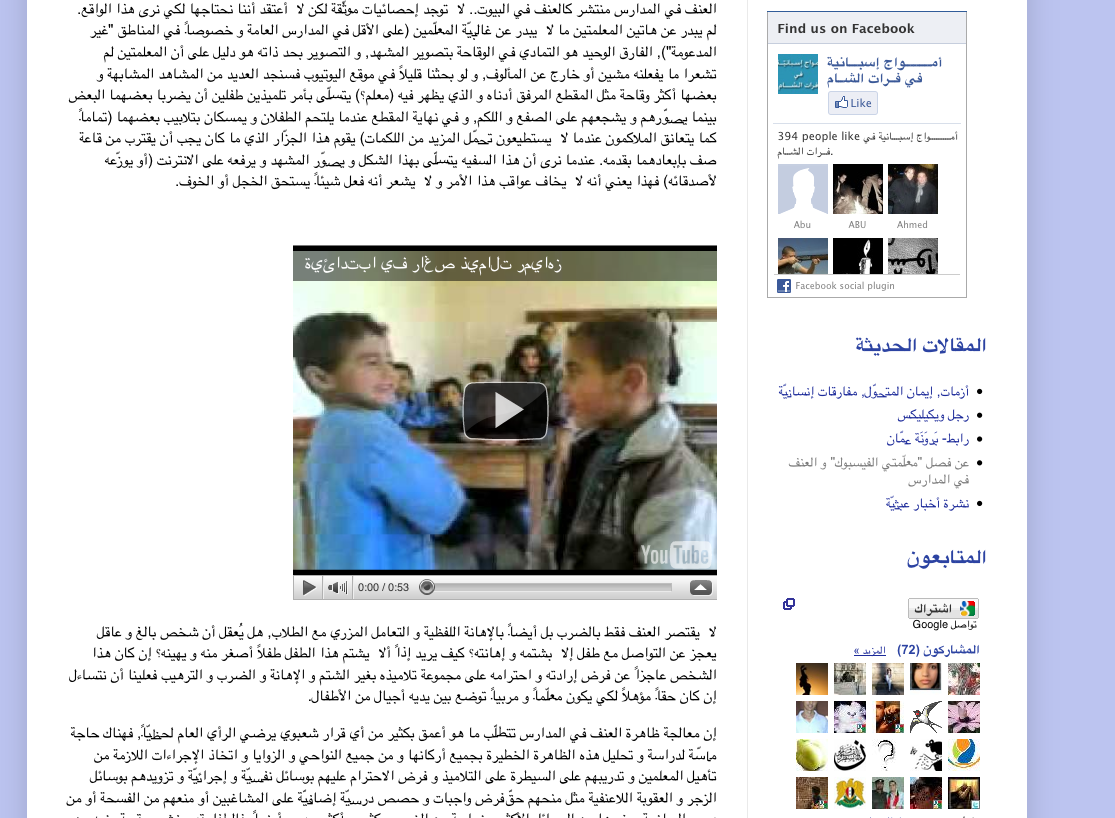Bloggers protest dismissal of “Facebook teachers”


SMN No. 11, Dec. 9, 2010
The government’s decision to dismiss two teachers who drew national anger after a video showing them beating schoolchildren was posted on Facebook has been greeted with surprising criticism by some Syrian bloggers.
The video, featuring the pair beating and humiliating children in a school, was circulated widely on the internet and sparked the creation of a 4,500-strong Facebook group demanding the teachers be punished. But after Prime Minister Mohammad Naji Otri announced on November 22 that the pair – who became known as “the Facebook teachers” – would be dismissed, bloggers showed some unexpected support for them.
Blogger “Abo Dimaghen” posted a message of support for the teachers on November 24, criticizing the lobby groups on Facebook. Describing the people behind the Facebook campaign as “empty, ill, flatulent”, he said that they had exaggerated the story and thus put more pressure on officials to dismiss the two teachers without following official procedure. He argued that their dismissal had destroyed the two teachers by depriving them of their salaries and leaving them suffering from “guilt feelings” for the rest of their lives, only because they did not have the right connections with high ranking officials.
Abo Dimaghen went on to criticise Syrian Facebook users, claiming that when a citizen is beaten by another normal citizen, they feel humiliated, but when a citizen is beaten by a powerful official, nobody cares. He went on to demand the two teachers be reinstated and compensated for damages following their dismissal.
On November 25, a blogger known as “Spain waves in Sham Furat”, said that the two teachers deserved to be punished for their behaviour to the children, but that violence in schools would not be ended by their dismissal.
The blogger said that they had been made into scapegoats purely to satisfy the public and to scare other teachers, adding that violence exists throughout families and society, and that what the two teachers did was not very different from what other teachers do, especially in public schools and in poor areas.
